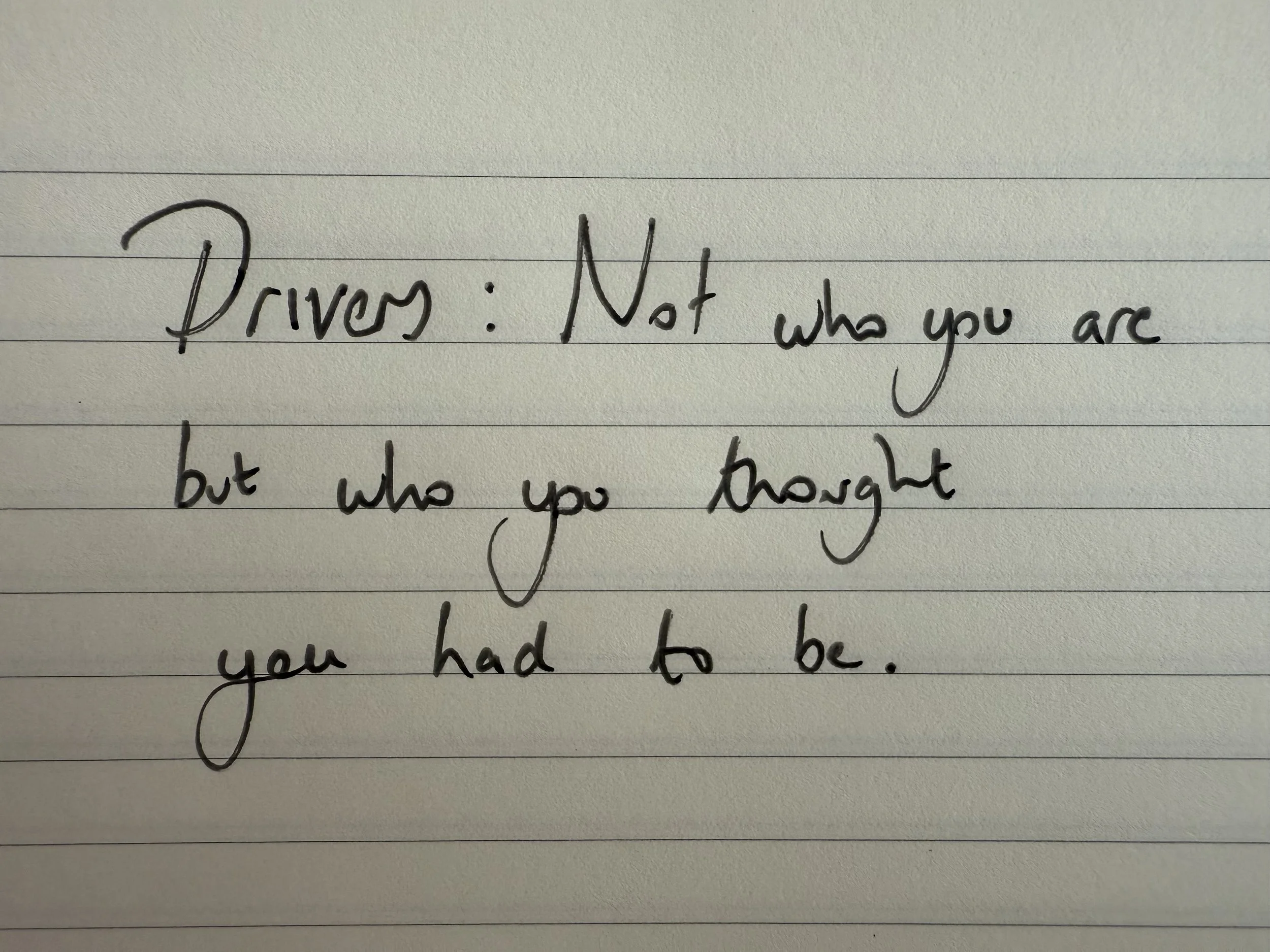You Can Be More Than Perfect, You Can Be Yourself.
She was the kind of girl who got straight As without being asked. The kind who colour-coded her revision notes, remembered birthdays, said thank you to bus drivers. Teachers called her conscientious. Family called her mature. She liked those words - they felt safe. Like proof she was doing life right.
Later, she became the kind of adult who triple-checks emails before sending them. Who offers to help before she’s finished her own work. Who plans holidays like a military operation and apologises for being “a bit behind” even when she’s ahead.
On paper, she’s thriving. A high-performing career, a curated life. People admire her precision. Her capacity. Her calm.
But underneath it - a kind of pressure. Not loud, not frantic. Just always… there. The sense that if she gets something wrong, she won’t just feel bad - she’ll be bad.
There’s a name for this pattern: a Driver. Specifically, Be Perfect. It’s not a personality trait. It’s a survival strategy — a quiet internal rule that says: If I get everything right, maybe nothing will fall apart.
And while it works — she is, after all, very good at life — it’s also exhausting. Because perfection is a moving target. And she’s been chasing it for so long, she’s no longer sure who she’d be without it.
In the modality of psychotherapy I study, there are five core drivers:
Be Perfect – the push to get everything right, all the time.
Be Strong – the pressure to stay composed and self-reliant, no matter what.
Hurry Up – the sense that you must always move faster, do more, never pause.
Try Hard – the relentless striving and effort is what earns your worth.
Please Me – the instinct to tune into others’ needs, anticipate them, and avoid disappointing anyone.
Most people carry one or two more than the others. They’re not picked consciously. They settle in early — shaped by subtle cues in the emotional atmosphere of a childhood. No one has to say the words. They’re felt.
A sigh when she didn’t get full marks. A frown at a crumpled shirt. A smile only when she got it right.
Be perfect. Be good. Be easy to like. The rules were never written down, but she followed them anyway.
And now? She still does. She curates. She delivers. She proofs the proofreader.
I know this person because I am this person.
And when I started training as a psychotherapist, I thought I’d left most of that behind - the straight-A girl, the high performer, the one who keeps it all looking effortless. But perfectionism is clever. It shapeshifts. It doesn’t just live in report cards or career ladders - it shows up in healing too. In being “a good client.” In wanting to get therapy right.
Which, of course, is missing the point entirely.
Because these drivers aren’t flaws to fix. They’re early equations we learned to get our needs met. They once protected us - helped us feel valued, accepted, safe. And the goal isn’t to get rid of them, but to loosen their grip. To choose more freely, feel more fully, relate more honestly.
That’s what therapy can be. Not a solution. A softening. A slow unlearning of the rules you never consciously signed up for.
And maybe, a chance to find out who you are when you're no longer trying so hard to be good.

